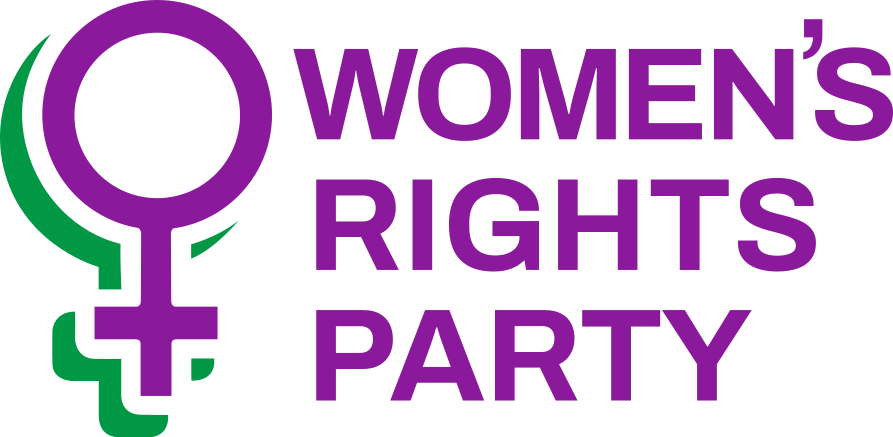The Women’s Rights Party is concerned that questions being circulated by a committee of CEDAW (the Convention for the Elimination of All Forms of Discrimination Against Women 1979) appear to be considering a possible support for “gender identity” being included as a “right” in law.
Instead of affirming the sex-based rights for women which are clearly laid out in CEDAW, it appears that the Committee is considering re- interpreting CEDAW as providing rights to a “gender identity”, thereby including men who identify as women in the category of women.
If this path were followed, women’s rights would no longer have any protection under CEDAW and CEDAW would cease to have any meaning. It would not be the correct function of the CEDAW Committee to undermine CEDAW in this way.
The Women’s Rights Party and the Women’s Declaration International- New Zealand jointly wrote a letter to the CEDAW Committee, expressing concern about this.
Here is a summary of their letter:
Dear Professor Hacker,
We are writing in response to a questionnaire that was circulated by you for the CEDAW Committee.
The questionnaire asked about whether gender identity should be recognised as a legal category and/ or a legal right. We are concerned that the inclusion of gender as a legal right and category in law would undermine the principles of CEDAW- the Convention on the Elimination of Discrimination against All Forms of Discrimination Against Women.
The Rights of Women in CEDAW are sex- based. Gender is a social construct which reinforces the subordination of women. Article 5 of CEDAW makes it clear that the intention of CEDAW is to eliminate these harmful social constructs. This has been re- affirmed by several UN definitions, and by the General Recommendation 28 of the CEDAW committee in 2010.
In 2024, Reem Alsalem, the UN Special Rapporteur on Violence Against Women and Girls, clarified this still further in her Position paper on the definition of “woman” in international human rights treaties, in particular the Convention on the Elimination of All Forms of Discrimination Against Women.
Regarding General Recommendation 28, she said ” It is also clear that the CEDAW Committee did not equate a person who may identify as a woman and a man with someone who is a woman or a man – the latter being defined as either biologically male or female. ” She emphasised that the sex-based rights of women cannot be over-ridden by rights being claimed according to gender.
In New Zealand, the sex-based rights for women, guaranteed by CEDAW, are included in our Human Rights Act, which guarantees women rights according to their sex.
This legislation has been misinterpreted, leading to an undermining of women’s rights. Any efforts to include gender in our Human Rights Act would further risk eroding those rights.
Recent legislation which includes concepts of gender, such as the Conversion Practices Legislation Act and the Births Deaths and Marriages and Relationships Registration Act, has created confusion in New Zealand society. The laws are contributing to the loss of women’s rights and women’s spaces, as well as putting children at risk of harmful medicalised “transition” practices- which are the real conversion practices.
In response, we make the following recommendations:
Recommendations
- Support and promote the provisions for women’s sex-based rights, established in international law, including CEDAW.
- Maintain the clear distinction between sex and gender which is provided by UN definitions.
- Do not conflate sex and gender or use language which could confuse or conflate them. That includes not placing terms about sex, gender and identity together with a diagonal line , for example ” self sex/gender identity” “sex/gender” or “gender/ sex self-identification”.
- Support the General Recommendation 28 of the CEDAW Committee in 2010.
- Endorse the position paper by Reem Alsalem, the special rapporteur on violence against women and girls , on the definition of “woman” in international human rights treaties, in particular the Convention on the Elimination of All Forms of discrimination Against Women, written 4 April 2024.
- Use the term “non-conformity to sex -based stereotypes” if there is a need to protect the rights of those who do not conform to the behaviour expected of their sex .
- Recognise that the right to non-conformity to sex-based stereotypes is held by a someone as the sex that they are, not as the sex that they may want to be.
- Recognise that the right to non-conformity to sex- based stereotypes does not give a male the right to enter women’s spaces, or to claim rights that are specifically for women.
- Do not use the terms ‘self sex” , “self sex/gender identity’ “sex/gender identity” or “sex/gender” or support them in law..
- Do not support terms like ” gender” “gender identity” or “gender expression” being categories in law.
- Do not support “sex self-identification”, “gender self- identification ” or “gender/sex self-identification” being provided as a “right” in law.
- Do not use the term “cis.”
- Reject any proposal to interpret CEDAW as being about, or including, gender.
- Reject any proposal to include gender in CEDAW.
We ask the CEDAW Committee to maintain and uphold the sex-based rights provided for women in CEDAW. The Committee must not be part of a process which would undermine or erase these rights.
Kind regards
Jill Ovens, Women’s Rights Party
Janet, Women’s Declaration International- New Zealand
